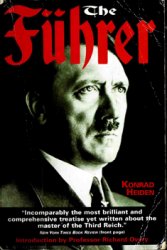That Sukarno in overwhelmingly Muslim Indonesia could manipulate Islamist political aspirations and even back away from the Jakarta Charter's 'obligation of Muslims to observe the shari 's’ suggests that one may well exaggerate the Islamic factor in the politics of Muslims. In fact, secular, non Muslim (even Occasionally 'anti clerical’) leaders and ideologies throughout the Muslim world during much of the modern period have been significant, and at times clearly dominant. In twentieth century Egypt, for example, the ideas of al Banna and Sayyid Qutb have surely been important but less so than those of Sa'd Zaghltil and Nasser. For much of the twentieth century politics and political thought have been dominated by the likes of Ataturk, the Pahlavis father and son in Iran, Sukarno, Tunisia’s Bourguiba, Amanullah in Afghanistan and Ba'thists throughout the Arab world. Yes, many of the above came to grief and their ideas were discredited, but in their time they kept Islamists and Islamist notions under control. The unpopularity ofIslamist regimes in Sudan and Iran suggests that political Islam once in power may face a similarly limited tenure.
The Western domination of Muslim countries over roughly the last two centuries has provided a strong inducement for Muslims to think in terms of Muslims vs non Muslims. That they have certainly done and continue to do, but playing the Islamic card has not always been determining. Sultan Abdulhamid who embraced pan Islam was ultimately overthrown by the Young Turks championing the ideology of the secular state. Later, the pan Islamic impulse as a would be unifier transcending individual states has been rivalled by the notion of a unity embracing all peoples long dominated by Western imperialism. The idea of a 'Third World’ unity was epitomised by the 1955 Bandung meeting of twenty nine Afro Asian countries, and for a time the speeches by Nasser and others linking in unity the peoples of 'Africa, Asia and Latin America’ became almost a mantra.
Nor can the contributions of many different Western ideas in shaping the modern political thought of Muslims be overlooked. These would include in addition to that protean ideology, nationalism (if nationalism can rightly be labelled 'Western’), but also such diverse ideologies as communism, fascism and socialism, the idea of state led 'command econo mies’ as well as feminism.
Even so, the Islamic idiom in the political thought of Muslims is hardly ever completely absent, and it is usually the preferred mode of expression. This does not, however, mean that there exists a procrustean bed ofpolitical thought labelled 'Islamic’ that ultimately shapes the ideas and actions of Muslims. Rather, new ideas are quite often fitted into existing tropes. Ideologues, for example, have used that Islamic golden age, the time of the Prophet Muh. ammad, to argue for the separation of religion and state (e. g. 'All 'Abd al Raziq) or, on the other extreme, the complete merger of religion and state.




 World History
World History









